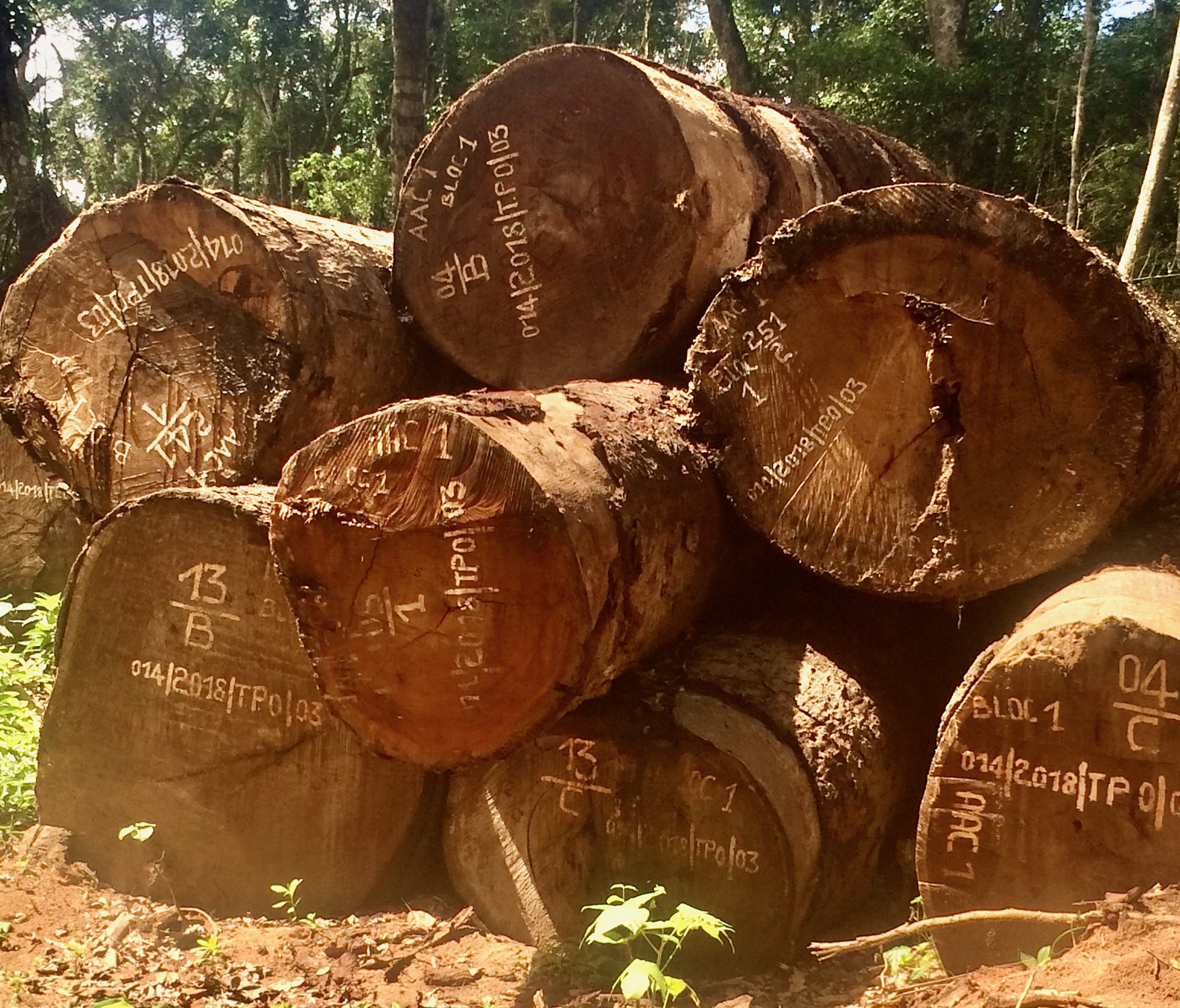Introduction

Timber for export from the company FODECO with dubious legality (Judith Verweijen)
Most stories about the Democratic Republic of Congo (DRC) and its natural resource wealth emphasize “the paradox of plenty”. In spite of its rich mineral deposits, fertile soils, and vast forests, the DRC continues to be one of the poorest countries in the world. Large-scale industrial resources exploitation–whether mining, logging or agri-business–rarely, if ever, benefits the poor. In fact, it often harms them, as it displaces them from their land and undermines their livelihoods by restricting their access to natural resources or polluting their environment.
One reason for the negative effects of industrial resource exploitation is the irregular implementation of policies and the non-enforcement of laws. On paper, mechanisms exist which guarantee local inhabitants (limited) benefits from this exploitation and which should prevent irreparable destruction of the ecosystems on which they depend.
In practice, however, policies and legislation are rarely enforced. When offered money, authorities turn a blind eye. Moreover, together with the security services and justice apparatus, they often block efforts by people to hold companies to account.
Around most sites of resources extraction, a range of actors is engaged in valiant efforts to hold companies to the signed agreements and regulatory frameworks, including environmental protection. These actors encompass local leaders, members of community-based and civil society organizations, and journalists. Around mining projects, artisanal miners often mobilize too, as they see their source of income and way of life threatened. These defenders generally fight simultaneously for protecting their livelihoods, their land, ecosystems and the environment. They may, for instance, denounce logging companies operating outside the boundaries of their concessions, agribusiness companies using toxic pesticides, or mining companies not realizing the social investments that they promised.
In this blog series, we zoom in on the struggles of these environmental and livelihoods defenders and the risks that they face. They are often intimidated by collaborators and intermediaries of corporations, including politicians, administrators and members of the security services and judiciary whose support has been ‘bought’. They may also be arrested, detained and prosecuted on trumped up charges. In many cases, they also become embroiled in conflicts with other members of their communities who have a different position vis-à-vis the corporations operating in their environment. Despite these dangers, they often courageously continue their struggle, hoping for a better future for their children.
The blog series is based on field research conducted around mining, logging and palm oil concessions in north-east Congo (the provinces of Tshopo and Ituri) as part of a British-Academy funded project on “environmental defenders and atmospheres of violence” (SDP2/100278).



